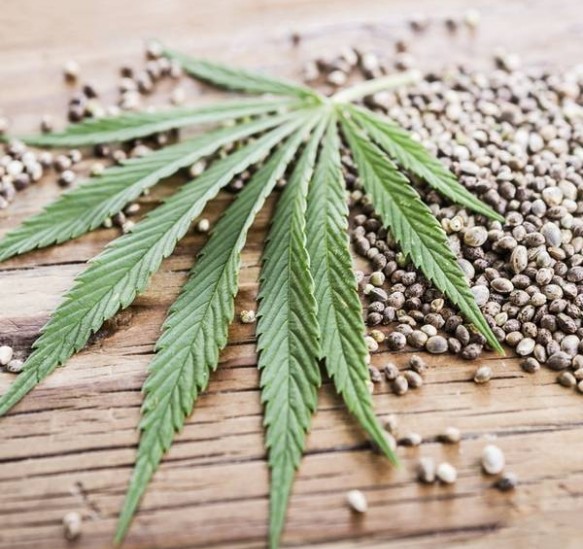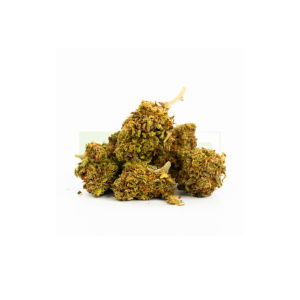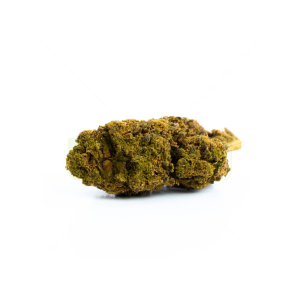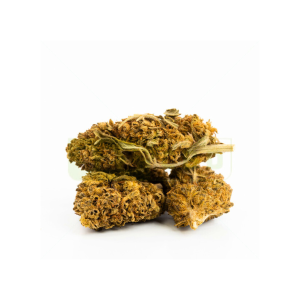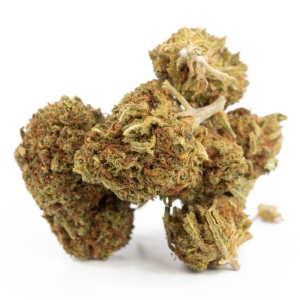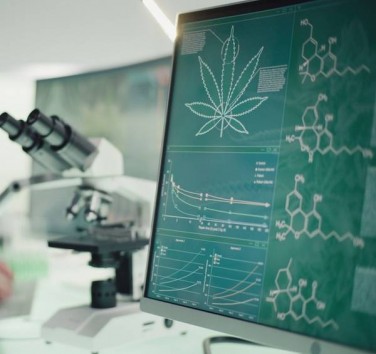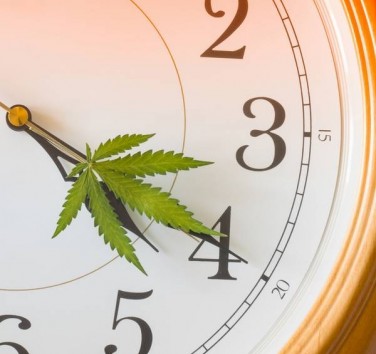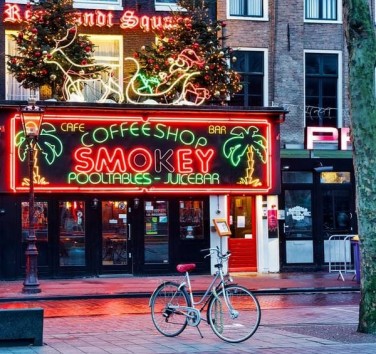Sommaire
- History of cannabis seeds in France
- The basic principle of seed legality
- Traditional and medicinal uses of cannabis seeds
- Every country is different
- Italy and cannabis seeds
- France follows the path of Italy
- The status of CBD seeds: A notable difference from traditional cannabis seeds
- Can you grow legal CBD from CBD seeds?
- The status of cannabis seeds around the world: An overview of international regulations
- Will the law change in the future regarding the status of cannabis seeds in France?
History of cannabis seeds in France
The legal framework governing cannabis seeds has deep roots in international history. In 1962, the Single Convention on Narcotic Drugs was established, providing a legal basis on a global scale. This international treaty, signed by 180 member states, classifies cannabis as an illegal substance. However, there is an interesting nuance: although cannabis is considered illegal, its seeds are not. Indeed, the seeds, in their raw state, do not contain any narcotic components, making them technically legal under international law.
However, when a product enters the territory of a specific country, it is subject to the national laws of that country. This creates a situation where it is possible for seeds to be banned in one country, but legal in another. That being said, the situation changes dramatically when these seeds germinate. Once germinated, although they do not yet contain THC - the main psychotropic component of cannabis - many governments consider the young plant an illegal narcotic substance, reflecting the intention to cultivate a potentially prohibited substance.
This legal complexity creates a landscape that consumers, growers and distributors must navigate carefully, keeping in mind both international and domestic laws.
The basic principle of seed legality
Legislation is evolving quite quickly, and with it the landscape surrounding the substance of cannabis. However, cannabis seeds are not illegal throughout Europe in principle. It is therefore entirely possible to acquire seeds in other countries while having them shipped to you.
As a result, many countries in Europe have seen a significant increase in the number of seed stores. Indeed, given that it is up to the police to provide evidence demonstrating that the purchase of seeds is intended for the cultivation of cannabis, many sellers practice their trade by dancing on a fine line between illegal and legal.
Cannabis seeds are known to be rich in proteins but also in amino acids. This is what makes it an excellent healthy snack. These seeds are often used as fishing bait, they are also used in additives, luxury bird food or even as a collectible.
Traditional and medicinal uses of cannabis seeds
Cannabis is a complex plant that can be classified into different varieties depending on its end use. The main distinction is between cannabis sativa, which is often associated with marijuana, and hemp, a subspecies of cannabis sativa. The seeds of both types of plants have been used for various purposes throughout the ages.
Industrial hemp seeds (food):
Nutritional properties: These seeds are consumed for their nutritional benefits. They are rich in essential fatty acids like omega-3 and omega-6, which are beneficial for heart health and the regulation of inflammation. They are also an excellent source of plant-based protein and contain essential vitamins and minerals.
Traditional uses: Historically, hemp seeds were ground to make flour, pressed to obtain oil, or eaten whole as food.
Cannabis seeds (intended for cultivation):
Absence of psychoactive components: These seeds do not contain THC (tetrahydrocannabinol), the main psychoactive component of the plant. Only after germination and growth of the plant are THC and other cannabinoids produced.
Medicinal uses: Although the seeds themselves do not have psychoactive properties, in some medicinal traditions they have been used to treat various ailments, such as constipation or abdominal pain.
Every country is different
It is possible to buy a product in a country that is completely legal, but which is not legal in your own country. When a product, such as cannabis seeds, enters a country, they are systematically subject to the latter's laws.
In 1962, the Single Convention on Narcotic Drugs provided the framework for global legislation. 180 member states have agreed on the illegality of cannabis by signing an international treaty stipulating this. Furthermore, cannabis seeds are not illegal. In seed form, they do not have any narcotic components. Thus, international law takes precedence over national law, meaning that cannabis seeds are technically legal in all member states.
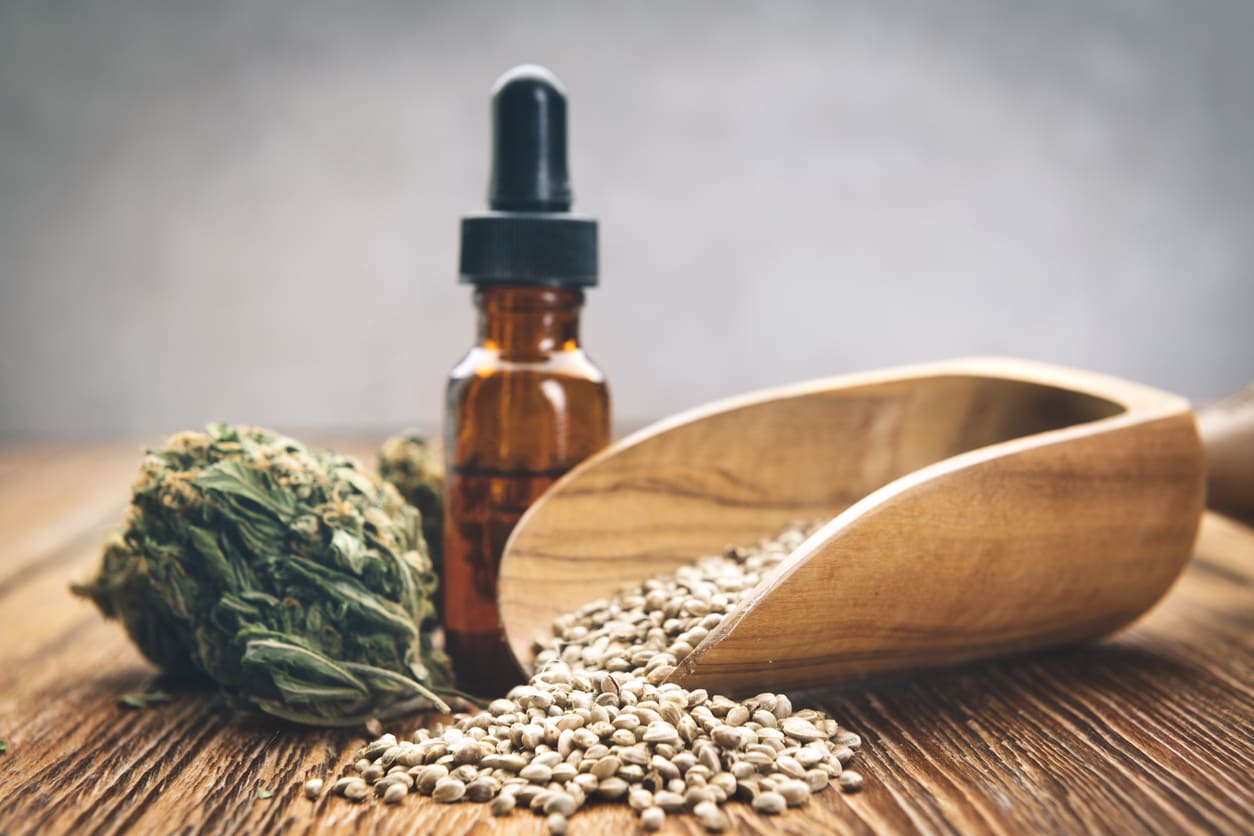
Italy and cannabis seeds
In Italy, the purchase and sale of cannabis seeds is legal, as they are THC-free products. As a result, they comply with the Consolidated Medicines Regulation Law and do not violate Italian medicines regulations.
Although hemp seeds are not a drug, if germinated they lead to the growth of a plant that could produce flowers high in THC and therefore illegal in the country.
They are prohibited from germinating indoors and outdoors and in greenhouses. These are seeds to be harvested, and using them to start growing cannabis is illegal. If you grow marijuana in Italy, you are committing a criminal offense, so you risk prison and a very high financial penalty. And even if you produce minimal quantities for personal use only, you would be committing an administrative offense.
France follows the path of Italy
As for cannabis, France takes almost the same restrictive measures as Italy. Thus, those who live in France can sell (subject to authorization) collectible cannabis seeds, but those who buy these products cannot plant and germinate them.
Growing hemp seeds and other actions related to cannabis, such as smoking it, are considered crimes. As a result, they result in imprisonment and fines.
Possession and consumption of cannabis in France
Possessing or consuming Cannabis containing THC in France is illegal. In fact, in this country no distinction is made between possession of cannabis itself and trafficking. France thus assumes a very conservative role with regard to the possession and use of marijuana, by not discriminating against personal use of Cannabis and sale to others. Instead, penalties for possession and trafficking of marijuana in France are determined by the quantity and conditions under which the seizures were made.
However, the public prosecutor may subsequently decide that the quantity and state of the seizure do not incur any penalty or sanction and that all this results in a warning. Additionally, people caught in possession of cannabis will also be eligible for rehabilitation programs, so they will not have to face financial penalties.
Under the government of Nicolas Sarkozy, the first signs of decriminalization of marijuana began to appear in France. Thus, in 2008, a new law was introduced allowing citizens seized with small quantities of marijuana to give lectures and awareness classes against cannabis abuse.
The goal of these programs is to rehabilitate consumers instead of fining them. However, it is the duty of the informed person to justify their dependence on Cannabis. If he is unable to meet this requirement, he may face penalties of up to €450.
It is Emmanuel Macron's government which has taken a new step in the French regularization of marijuana. In 2018, the French began taking advantage of a new policy that imposed on-the-spot fines for consuming or possessing marijuana worth 200 euros. However, it is important to note that the legal procedure can go further depending on the conditions in which the seizure took place.
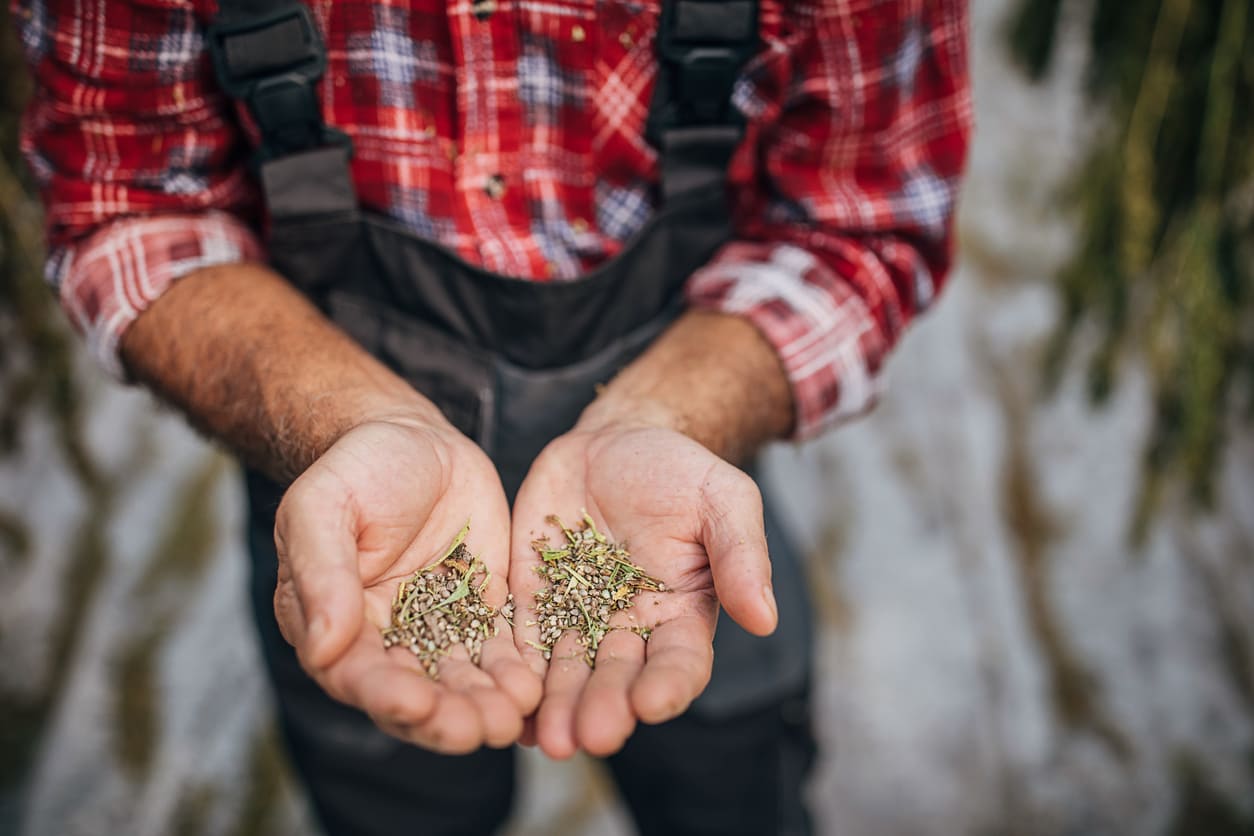
Cannabis culture in France
The cultivation of cannabis in France is illegal. Penalties for such marijuana cultivation offenses in France can be up to 20 years in prison or a monetary penalty of 7.5 million euros.
Although the scenario of marijuana cultivation in France is very restrictive, at least a priori, the truth is that the highest penalties are rarely imposed.
Cannabis sales in France
The sale of cannabis in France is completely prohibited by law. Indeed, French legislation is very strict on drug trafficking. Penalties for selling marijuana in France can be up to 20 years in prison or a fine of up to 7.5 million euros.
As is also the case in many European Union countries, there are aggravating circumstances that can double these penalties. Aggravating circumstances include the sale of marijuana to minors, the use of violence or membership in an organized gang.
The status of CBD seeds: A notable difference from traditional cannabis seeds
When it comes to cannabis seeds, there is an important distinction to make between classic cannabis seeds and CBD seeds. While cannabis is generally associated with psychotropic effects due to the presence of THC, CBD (cannabidiol) is a non-psychoactive cannabinoid that exhibits potential therapeutic properties. As a result, CBD seeds have a different status than THC-rich cannabis seeds.
In France, the legislation surrounding CBD seeds is relatively complex and constantly evolving. Unlike regular cannabis seeds, CBD seeds are often considered legal because they generally contain only a negligible amount of THC. However, it should be noted that regulations may vary from country to country.
Purchasing CBD seeds offers amateur or therapeutic growers the opportunity to grow cannabis plants rich in CBD, which are often sought after for their relaxing and potentially health-promoting properties. However, it is essential to ensure that the CBD seed varieties chosen meet the legal limits in terms of THC levels.
It is also important to point out that the cultivation of cannabis, including CBD varieties, may be subject to strict regulations, such as obtaining specific authorizations and complying with specific cultivation conditions. It is therefore recommended to find out about the laws in force in your country and to scrupulously comply with the applicable regulations.
Can you grow legal CBD from CBD seeds?
Growing CBD-rich cannabis from CBD seeds may seem like an attractive option for those who want to benefit from the therapeutic properties of CBD without the mind-altering effects of THC. However, it is important to understand the regulations and conditions surrounding this practice.
Typically, CBD seeds are bred to contain high levels of CBD and very low levels of THC, thus meeting legal limits. However, this does not guarantee that all plants grown from these seeds will produce CBD within legal limits. CBD content also depends on many factors, such as growing conditions, plant genetics and harvesting techniques.
To grow legal CBD from CBD seeds, it is crucial to comply with the specific regulations in force. This may include obtaining legal permissions or cultivation licenses, as well as complying with specific cultivation conditions, such as permitted THC level limits and permitted cultivation areas.
Also, it is important to note that even though CBD seeds are legal, this does not necessarily mean that cannabis cultivation in general is legal in all cases.
The status of cannabis seeds around the world: An overview of international regulations
The status of cannabis seeds around the world varies greatly from country to country. Here's an overview of cannabis seed regulations in some of the world's largest countries and regions:
Europe:
-
Netherlands: Known for its tolerant policy towards cannabis, the Netherlands allows the sale of cannabis seeds in regulated coffee shops.
-
Spain: The possession and purchase of cannabis seeds is legal in Spain, although their cultivation may be subject to regional restrictions.
-
Germany: Purchasing and possessing cannabis seeds is legal in Germany, but cannabis cultivation is subject to strict regulations.
United States and Canada:
-
United States: Cannabis laws vary from state to state in the United States. In some states, purchasing cannabis seeds is legal, while other states have more restrictive regulations.
-
Canada: As of 2018, recreational cannabis is legal at the federal level in Canada, which includes the legality of purchasing cannabis seeds.
Latin America:
-
Uruguay: Uruguay was the first country in the world to legalize the sale and consumption of cannabis for recreational purposes. Therefore, purchasing cannabis seeds is also legal there.
-
Colombia: Although growing cannabis for medical purposes is legal in Colombia, the legal status of purchasing cannabis seeds can vary depending on the purpose of their use.
Asia:
-
Israel: Israel is considered one of the pioneers of medical cannabis research. The purchase of cannabis seeds is permitted for specific medical use, but strict regulations apply.
-
India: Cultivation and consumption of cannabis is illegal in India, including the purchase of cannabis seeds.
Australia:
-
Australia allows the cultivation of cannabis for medical purposes, but each state has its own regulations. Purchasing cannabis seeds is generally legal, but obtaining a cultivation permit is necessary.
Will the law change in the future regarding the status of cannabis seeds in France?
The status of cannabis seeds in France is a subject that gives rise to numerous discussions and questions. While current legislation remains strict in terms of the cultivation and consumption of cannabis, it is legitimate to wonder whether the law could evolve in the future, particularly with regard to the status of cannabis seeds.
It is important to note that French legislation is subject to changes and adjustments over time. The question of the status of cannabis seeds may be influenced by factors such as scientific advances, changes in social attitudes, expert recommendations and examples from other countries.
There are already signs of change in France. For example, legislation has recently evolved to allow the use of cannabinoid-based medications for specific medical conditions. This growing openness towards therapeutic applications of cannabis could indicate a potential shift in the status of cannabis seeds in the future.
In addition, the legalization of cannabis for recreational purposes in several countries around the world has also sparked debate on the issue in France. Arguments in favor of looser regulation of cannabis highlight aspects such as the possibility of controlling product quality, generating tax revenue and reducing the impact on the penal system.
However, it is important to keep in mind that legislative changes can take time and be subject to complex debates. Policy decisions often involve careful weighing of benefits and harms, as well as public health and safety concerns.
It is therefore difficult to predict with certainty whether the law will change in the future regarding the status of cannabis seeds in France. However, it is essential to stay informed of legislative developments and participate in discussions on the issue.
Although the status of cannabis seeds in France currently remains strict, there is always the possibility of legislative changes in the future. The growing desire of many countries to revise their approach to cannabis and scientific advances in the field may influence the debates in France. It is important to closely follow legislative developments and contribute to a constructive dialogue to shape the future of the status of cannabis seeds in France.

